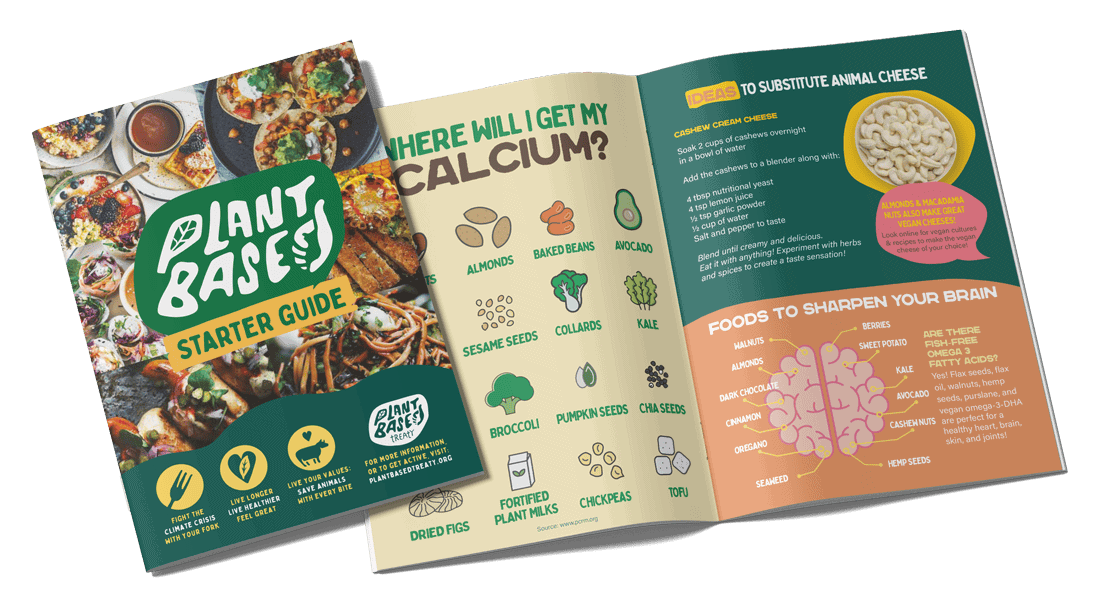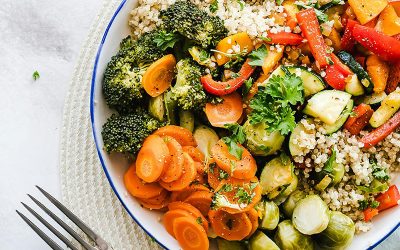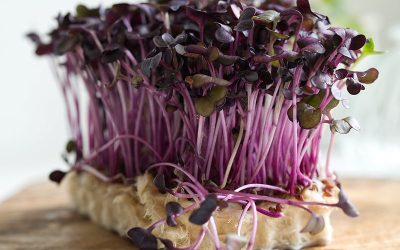Blog
Overcoming Lupus: Part Of Plant-Based Treaty’s Diet Change Series
February 13, 2025
Welcome to the next installment of our diet change series referencing nine major diseases that Dr. Michael Klaper spoke about in his keynote address at the 5th annual Canadian Plant-Based Nutrition and Lifestyle Medicine Conference in Toronto. We have previously covered Type 2 Diabetes and Asthma. Dr. Klaper, an endorser of the Plant Based Treaty is an internationally recognized physician, educator, and speaker on diet and health.
His keynote address was packed with essential information to help patients overcome many diseases, including lupus. While working as a physician at True North Health Centre in Santa Rosa, California, most of Dr. Klaper’s patients were initially overweight, if not clinically obese, with multiple medical issues. They were put on a whole plant foods diet with no added salt, sugar, or oils, and he explains that all nine diseases “improve under the influence of a whole foods plant-based diet.”
Keep reading to learn how switching to a plant-based diet may improve the health of lupus patients. Eating more plants and less animal products also reduces issues related to climate change and greenhouse gasses, and saves millions of animals from suffering needlessly in the animal agriculture industry.
Health issue: Lupus

It’s estimated that 1.5 million Americans, and at least five million people worldwide, have a form of lupus.
They explain that lupus most commonly affects skin, joints, and internal organs like kidneys and heart, but many parts of the body can be affected with a range of symptoms. It’s estimated that 1.5 million Americans, and at least five million people worldwide, have a form of lupus and that ninety percent of people living with lupus are women. Symptoms of lupus include pain, extreme fatigue, hair loss, cognitive issues, and physical impairments. “Many suffer from cardiovascular disease, strokes, disfiguring rashes, and painful joints”, the foundation states.
“Lupus is a chronic inflammatory autoimmune disease with a wide range of clinical presentations resulting from its effect on multiple organ systems. There are four main types of lupus: neonatal, discoid, drug-induced, and systemic lupus erythematosus (SLE), the type that affects the majority of patients.” – PubMed
Studies
Dr. Klaper explains that lupus and other autoimmune diseases can improve or reverse on a whole foods plant-based diet and references medical studies and books.
“…Lupus and autoimmune diseases can improve dramatically, I urge anyone who has it themselves or has patients with lupus…please get this book by Doctor Brooke Goldner. She’s a physician who had severe lupus, she was having strokes and renal failure and she put it into remission with a whole food plant-based diet. And I recommend her [other] book too, Goodbye Autoimmune Disease to all my patients with lupus.” – Dr. Klaper
- Goodbye Lupus: How a Medical Doctor Healed Herself Naturally With Supermarket Foods: “Brooke Goldner, M.D. is a board certified physician known world-wide for being a medical doctor who has developed a nutrition-based treatment for her own autoimmune disease, Lupus.”
- Plant-based dietary changes may improve symptoms in patients with systemic lupus erythematosus: PubMed. “SLE [systemic lupus erythematosus] patients who changed their eating patterns to incorporate more plant-based foods while limiting processed foods and animal products reported improvements in their disease symptoms.”
- Six Week Raw Vegan Nutrition Protocol Rapidly Reverses Lupus Nephritis: A Case Series: International Journal of Disease Reversal and Prevention.
- Lupus erythematosus and nutrition: a review of the literature: PubMed.

Lupus could be caused by a combination of factors including genetic, environmental, and hormonal.
When it comes to lupus and diet, Forks Over Knives suggests lupus is caused by a combination of factors including genetic, environmental, and hormonal.
“Environmental factors, particularly obesity, can also influence lupus risk. In a prospective cohort study among 238,130 women in the Nurses Health Studies, obese participants were 85 percent more likely to have SLE than participants with normal BMIs. One possible explanation for this association is that obesity can contribute to gut dysbiosis. Additionally, an excess of adipocytes (fat cells) can push the immune system toward inflammatory pathways. – Forks Over Knives
Success Stories
Comedian Gina Yashere told the Guardian she beat lupus with a raw food diet.
She explains how she switched her diet to “… raw vegan… And within a month, my joints started to heal and I could feel that I could move again. I stopped the medication… that was back in 2009 and I’ve not been on medication for lupus since. I’ve sent it into remission.”
Joyce Hale found out her lupus meds were not stopping the progression of her illness even when they were increased and most of her organs had been attacked. She wrote for Forks Over Knives that she overcame lupus and eliminated her medications with a whole food plant-based diet.
“…I dug deeper into the WFPB nutritional approach to recovery. I met other patients who had overcome many illnesses and addictions. I also met doctors who had helped their patients heal with this way of eating and who had even recovered from their own debilitating autoimmune diseases simply by changing what they put on their plates…For the first time in two decades, I am 100 percent free of Lupus medication!”
Jami Heymann changed her diet after watching the documentary Forks Over Knives, which can be viewed in full here.
“…I changed my diet for good. I cut out all animal products, oil, salt, sugar, gluten, and even coffee. Within a week, my finger pain had diminished. Over the next few months, my overall pain, hair loss, and extreme fatigue gradually lessened until the day I realized I felt normal again. There were days that I even forgot that I had lupus.” – Forks Over Knives
Forks Over Knives examines the profound claim that most, if not all, of the degenerative diseases that afflict us can be controlled, or even reversed, by rejecting animal-based and processed foods.
Success Stories
Lupus Canada suggests eating foods rich in calcium, particularly if taking corticosteroids that interfere with the absorption of calcium which can lead to osteoporosis. If you want to skip milk and dairy products, as they have their own set of health concerns, enjoy foods like broccoli, Brussels sprouts, cabbage, beans, fortified juices, plant milks, and greens like kale, chard, okra, spinach, and collards.
Forks Over Knives explains that an imbalance in the gut microbiome is often associated with several autoimmune diseases, including lupus. They suggest eating fruits and vegetables that are high in fiber and phytonutrients to promote a healthy gut microbiome. Chia seeds and flax seeds are encouraged because of their high fiber content and omega-3 fatty acids, and turmeric and ginger for their powerful phytonutrients that can help decrease inflammation.
Recipes
This delicious Roasted Buddha Bowl by Oh She Glows is loaded with healthy broccoli, cauliflower, and chickpeas, and can be served on warm quinoa or brown rice. Their recipe for mouth-watering crispy Brussels sprouts includes multiple ways to flavor them, and they have many bean and legume recipes including spicy potato ‘n black bean burritos.
Cabbage, part of the cruciferous vegetable family, is high in vitamin C, fiber, vitamin K, and rich in vitamin B6 and folate and these vegan cabbage recipes are super nutritious.
It’s easy to incorporate more chia seeds into your diet with these 50 recipes using chia seeds by Daily Vegan Meal. Enjoy!
Disclaimer: This blog should not replace medical advice from a physician and is for informational purposes only.

Miriam Porter is an award-winning writer who writes about veganism, social justice issues, and eco-travel. Miriam currently lives in Toronto with her son Noah and many rescued furry friends. She is a passionate animal rights activist and speaks up for those whose voices cannot be heard.
More from the PBT Diet Change series
Overcoming Psoriasis: Plant Based Treaty’s Diet Change Series
By Miriam Porter
The Power Of Sprouting – A Plant Based Treaty Webinar
By Miriam Porter
5 Healthy Plant-Based Smoothies You Will Love
By Miriam Porter







